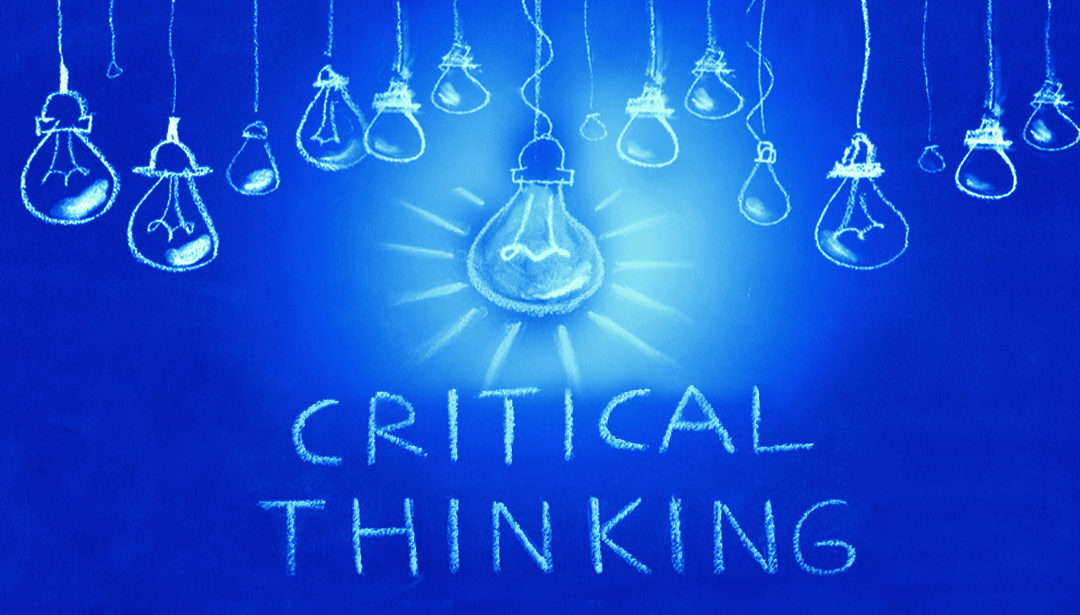
The Critical Mindset of the Board Member
How you can add consistent value by using critical thinking
Speech is the primary mode of communication in the boardroom. It is extremely important for board members to be able to articulate their thoughts and opinions in a thoughtful and articulate manner. So, would it surprise you if I said that a big component of boardroom communication is knowing when to be silent?
The process of thinking before speaking impacts the quality of the board’s discussion. If we speak without thinking about the concepts and principles of the subject, we may produce an impression that we want to derail the conversation, consciously or unconsciously. When we study and assess what we think about the subject, the quality of our conversation will be focused, relevant and result in more informed board decisions.
Prepare for the Board Meeting: Internalize First
The board packet provides updates to strategic initiatives, financial status and other essential items. Board members should receive this at least a week in advance of each meeting. The care (or lack thereof) with which each board member reviews the board packet and prepares for the meeting can add to or detract from the quality of relationships within the board, the outcome of the board meeting and, ultimately, the performance of the organization.
Valued board members understand they must evaluate their thinking. There are two pieces to consider about thinking. First, a person must think in an educated manner. To do this, board members should research and attempt to understand the topics they will be discussing. Second, the person must be skilled in evaluating his or her thinking. Board members should reflect on and understand their thoughts or opinions on the concepts to be discussed. Prior to the board meeting, directors should spend adequate time educating themselves on the topics they are uncertain about and begin to form an opinion, but also consider alternate points of view.
Someone with a critical thinking mindset examines the facts they know, educates themselves when gaps in their understanding appear, and attempts an unbiased analysis of the information, all in a rational, clear-headed manner.
The reason this is so important is because the board is responsible for making decisions that affect the future of the organization. Responsible board members will understand their obligation to carefully study and think critically for the sake of the best results.
When each board member commits to this preparation and introspection, it leads to more successful board meetings, better decision-making and stronger outcomes for the organization.
Further, when board members evaluate their embedded thinking patterns with an open mind, they can move from a fixed and entrenched mindset to a developing and generative mindset.
Provide Value: Reflect and Question
The value of the board as an entity directly correlates with the value contributed by each board member. Board governance that permits one or two board members to provide less value than needed is shortchanging the membership. To that end, each board member must engage in activities that require active thinking regarding the concepts and principles related to the board’s discussions. All board members are encouraged to engage in learning activities on their own or within the group to enhance their quality of critical thinking.
When we are too committed to our preconceived opinions and thoughts on a matter, we rob ourselves of the chance for reflective and speculative conversations and, ultimately, to add vast benefits for our membership. If we are not regularly engaging in the reflective and speculative components of critical thinking, we are, in essence, robbing our members.
Practice Critical Thinking: 7 Behaviors to Stretch Your Mindset
Are you a critical thinker? What are your critical thinking practices? If you are not sure, consider this list.
A critical thinker on the board:
- raises meaningful questions and articulates them with clarity and preciseness;
- accesses, then assesses relevant information;
- articulates abstract ideas to connect the dots;
- communicates well-reasoned and grounded suggestions and conclusions;
- continues to test those conclusions against standards, new information and important criteria;
- recognizes and challenges their assumptions in complex situations; and
- engages with others in an open dialogue to find solutions.
It is important to know that critical thinking can be learned; it is self-directed and requires self-discipline, uncompromising standards, and conscious and deliberate practice and application. Critical thinking blended with effective communication, relevant expertise and vital commitment to the purpose of the board produces a constructive partnership amongst board members as well as between the board and CEO.
Deedee Myers, PhD, MSC, PCC, CHIC, is CEO of CUES strategic provider DDJ Myers, Phoenix. If your board wants to improve its critical thinking as part of higher quality governance, reach out to DDJ Myers Ltd. at 800.574.8877. Myers referred to these resources in putting together this article: Paul, Richard and Elder, Linda: Critical Thinking, 2008; Reid, Thomas: Essays on the Intellectual Powers of Man, 1785; and Trower, Cathy: The Practitioners Guide to Governance as Leadership, 2013.
